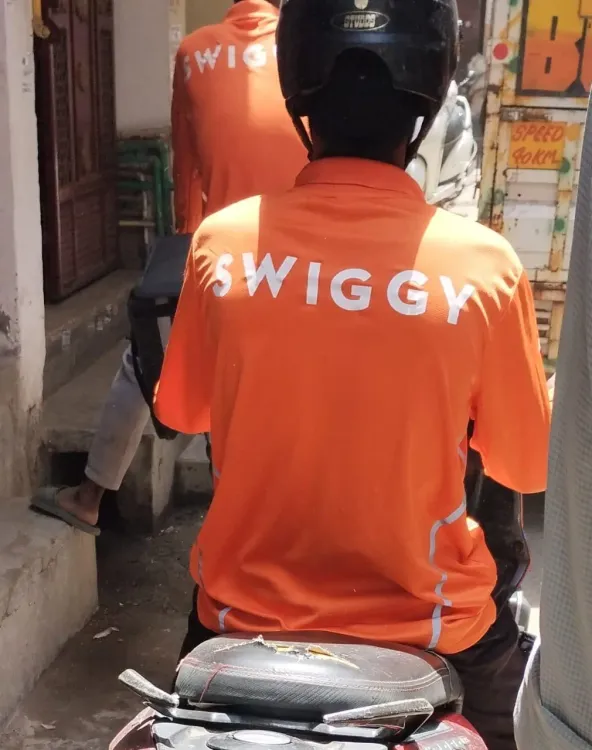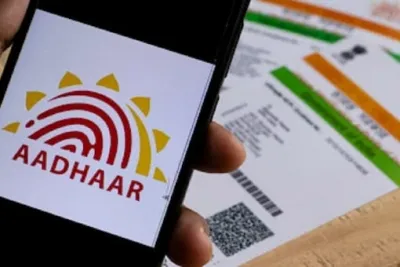Jefferies Highlights Swiggy's Profitability Struggles Despite Market Dominance

Synopsis
Key Takeaways
- Swiggy holds a 45 percent market share in India.
- Projected GMV of $3.4 billion by FY25.
- Instamart continues to operate at a loss.
- Negative EBITDA expected through FY27.
- Intense competition from rivals like Zomato and Amazon.
Mumbai, March 12 (NationPress) The food delivery service Swiggy is grappling with profitability issues even though it enjoys a robust market position, as outlined in a recent report by Jefferies published on Wednesday.
The brokerage has commenced its coverage on Swiggy Limited with a ‘Hold’ rating and a target price of Rs 400, raising concerns about the company’s financial standings.
Swiggy commands a 45 percent share in India’s online food delivery sector, closely rivaling Zomato.
The food delivery segment is anticipated to grow in the high-teens over the medium term, alongside an uptick in margins.
Jefferies forecasts Swiggy’s gross merchandise value (GMV) to hit $3.4 billion by the fiscal year 2025, with a 72 percent compound annual growth rate (CAGR) in EBITDA from FY25 to FY27.
However, despite these optimistic projections, Jefferies notes that “Swiggy’s journey to profitability remains unpredictable.”
A significant concern mentioned in the report is the financial performance of Swiggy’s quick commerce division, Instamart.
This sector has experienced rapid growth, achieving a GMV of $2 billion, “but continues to incur losses.”
The Jefferies report anticipates these losses will continue through FY26, with hopes for recovery only by FY27.
The division also contends with fierce competition from Zomato’s Blinkit, Zepto, as well as major e-commerce players like Flipkart and Amazon, further straining Swiggy’s margins.
Besides food delivery and quick commerce, Swiggy also ventures into online dining and supply chain services, but these segments remain comparatively small.
The company is projected to report negative EBITDA and free cash flow through FY27, raising alarms about its financial sustainability.
Although Swiggy remains net cash positive in the medium term, Jefferies warns that competition in the quick commerce space could further hinder its profitability.
Despite maintaining a stronghold in the hyperlocal market, Swiggy’s financial challenges are a persistent concern for investors.
The report suggested that while there is potential for growth, profitability continues to be a significant hurdle amid increasing competition and operational costs.









